Every diet guru claims that they have the fix for weight gain and binge eating. If you’re anything like me, at some point, you’ve tried them ALL.
I mean listening to every trick that every expert and Instagram model is selling. Praying that the next thing you try will pull you out of the binge eating, food-body funk for good.
Then reality hits. The supposed magic binge eating cure-all fails you big-time.
You’re still giving in to binging. Even worse, you can now officially add one more supposed magical cure to your fail list.
You still feel out of control with your body and your food, and you’ve lost the battle with binge eating. Again.
Why do these so-called experts tout their strategies as gospel, when they nearly always fail–and even leave you worse off than when you started?
Some experts are well-intentioned but misinformed. Others mean well but lack real-world experience.
But some of them just use sneaky marketing tactics to lure you toward their fear-based solutions.
Regardless of anybody’s intentions, misinformation still leads to misery. The “experts” tell a lot of lies about how to break free of binge eating, whether they know it or not or not.
That’s why I’m exposing the 4 biggest lies that the experts tell every day–and how to NOT let them trick you into yet another diet disaster.
Don’t be fooled by diet gurus and their campaign promises. By the time we’re done, you’ll be able to spot a diet myth a mile away–and save yourself the pain and frustration of failure.
Grab your truth-colored glasses and let’s debunk some diet and binge myths that the experts STILL claim are true!
–
–
Lie #1: Dieting. This is might be obvious, but it’s worth repeating. Diets lead to disasters. Still, they’re usually the first bill of goods that the gurus sell.
Why do we people still fall for the biggest myth of all?
First, diets seem logical. Burn more calories than you consume. Easy peasy, right? But diets fail to account for all of the complexities of the body, the brain, and the emotions–and with disastrous consequences.
Second, diets often produce encouraging short-term results. But that’s where the bait-and-switch effect begins. Truth be told, those results rarely last.
Bottom line, diets are based on restriction. In the long run, food restriction leads to eating rebellion. That is, the more you forbid any food, the worse the rebound binge will be.
But what if you have a legit health condition and certain foods genuinely are off the menu?
I’ve been there, too.
Back in the day, I battled adrenal fatigue, hyperthyroidism, kidney issues, leaky gut, food intolerances–you name it. My body was in constant turmoil.
All the professionals in my life told me that if I wanted to heal my body, I had to take a long list of foods off the table.
But the food itself wasn’t the problem. I was ravaging my body with binge and emotional eating on the regular.
Turns out that every diet I tried triggered me to binge. The more I dieted, the more food rules I enforced, the worse the rebound binges became. And the worse all of my health conditions became.
The diet that was supposed to put me back in control ended up being the thing that took my control away.
So if you hear any expert selling a diet, consider it an immediate red flag.
Lie #2: Healthy Eating Plans (AKA Diets in Disguise). I’m going to straight-up say it. Every eating plan, from Keto to Weight Watchers, is a diet masquerading as “healthy eating.”
Take Whole30, for example. The woman who created this program has a good heart and an admirable mission. Honestly, there are many supportive principles in her plan, which is a great thing.
She advocates eating nutrient-rich, high-vibrational foods. She’s big on eating to support your gut health. These are all loving and supportive practices.
But strangely enough, the clients we get from the Whole30 camp all tell the same story. When they went all-in with Whole30, were eating healthfully. But they were also constantly obsessing about every bite. Which lead to equally powerful rebound binging.
Restriction in any form, even as a healthy eating plan, always ends the same way. At some point, you snap.
That’s why any kind of eating plan is ultimately a diet in disguise–and will set you back more than it lifts you up.
Lie #3: Therapy. Now, I want to be clear. I’m not knocking therapy. There are well-intentioned therapists out there. There is a time and a place for inner work. If for whatever reason it feels like the right option for you, seek out therapy.
What I will say, though, is that many clients come to us because therapy didn’t come through for them. Some of them leave treatment centers feeling more lost and stuck than ever.
What’s is behind these epic therapy fails? We’ve discovered two main triggers.
First, traditional binge eating therapy relies on the ultimate binge eating trigger–restrictive eating protocol. It means that you’re attempting to solve the problem with the very thing that causes it.
Whether therapists know that they’re using a “fire with fire” approach or not, restrictive eating protocols nearly always backfire.
Second, traditional binge eating therapy stems from the idea that binge eating is only due to past traumas and emotional distress.
Now, I’m not saying that emotions play no role. They do.
For example, many of us bury residual traumatic feelings with food. Others who feel out of control in their lives often seek control with excessive eating. It’s definitely a thing.
I’m not saying that emotions don’t play a part. What I am saying is that they don’t have to be completely healed before you have a chance at freedom. You don’t have to uncover each and every emotional trauma in order to be free.
You see, patterns in your brain and body often trigger those heightened emotions in the first place. That means that breaking brain and body patterns are just as important as healing your emotions.
So emotions do matter. Just remember that perfect emotional healing is not a prerequisite to freedom from binging!
Lie #4: Food Addiction. I get that there are well-intended organizations that strive to help people heal from binging. But what if that organization tells you that you’re addicted to food, and you’ll never be free?
Overeaters Anonymous is one of them. They tell people that they’ll always struggle with binging, that they’re addicted to food, and food abstention is the only answer.
With all due respect to this organization, telling people that they’re food addicts is neither fair nor accurate. And treating that “addiction” with a restrictive diet is a recipe for disaster.
You see, “food addiction” doesn’t mean that you merely overeat. It implies that you have a disease, some sort of monster inside that needs to be controlled.
The subtext is also that you’ll never be free, that you’ll always be an addict, and the only answer is to control the inner binging beast.
This, my friend, is NOT the case.
This approach takes your personal power, convinces you that you’ll always be stuck, and ends up causing more binging than it cures.
The truth is that the urge to binge isn’t because of any inner demons. It’s merely your body’s response when it thinks that food is scarce. It’s actually your body’s weird way of saving you from starvation. It does not indicate an “addiction to food.”
These are the top four lies that the experts tell. Now, what do they all have in common?
They all seem logical. Sometimes they even work for a while. But eventually, you find yourself back at square one. Or worse.
They all are based on restriction and shame, in one way or another. They pit you against your brain and your body and set you up for eventual failure.
Be wary of any binge eating control tips that are about rules, restrictions, or diets. If it shames you in any way, if it makes you feel less than or like damaged goods, it’s NOT the answer.
Here’s the TRUTH. You’re not flawed. That thing that makes you binge is not a monster inside you, and it’s no reflection on you as a person.
The ultimate solution is based on love, support, and nourishment. It’s a path that helps you connect to yourself, honor your needs, and work with your body.
Controlling your urge to binge is a temporary fix, and this is all that most experts can offer you.
But what would it be like if you could naturally, let go of those urges altogether instead of attempting to control them?
If you need any support in this area, we are here for you!
Click the image below where I’ve got a special gift for you! We call them, “Craving Cards”, and they’re one of our most popular tools!
If you ever feel night time cravings, sugar cravings, the urge to just say “screw it I’m going to start my diet over tomorrow”, or like you need a little body confidence pick me up…
Just grab a card, go through the prompts, and shift it instantly!
Click the image above and let me know where to send them!
You’ll also get mini demo video training sessions for each card where I share how to use the cards and some of my best tips for food freedom forever!
With our Craving Cards and Demo Series…
You’ll learn how to stop cravings in their tracks, feel confident, and get back your power, fast!
Love,
Brittany
PS: Want the exact freedom and ease with our foods that myself and thousands of our clients get to experience?
In our Beating Binge Eating Blueprint (BBEB), I show you how to make this happen in just 8 weeks!
Many of our students have seen a DRASTIC difference in as little as a few days!
It’s our signature program, and up until recently, it was $3000 or more to join.
For now, you can get it as a part of our Food Freedom Collection for practically free by clicking the image below!
There is no catch…every resource I’ve created for food freedom and body confidence will land straight in your if you just click that image below and let me know where to send it!

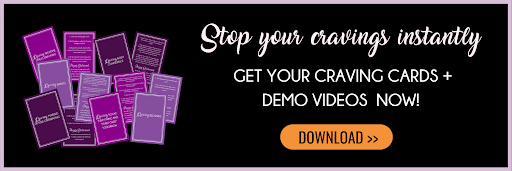


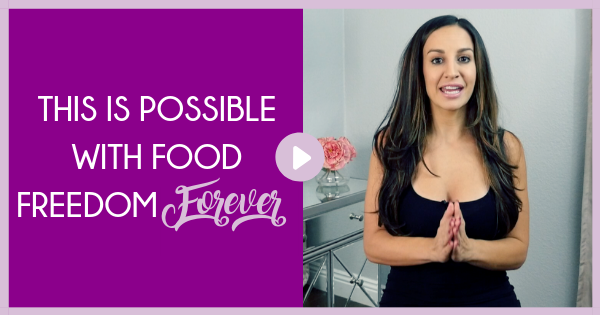

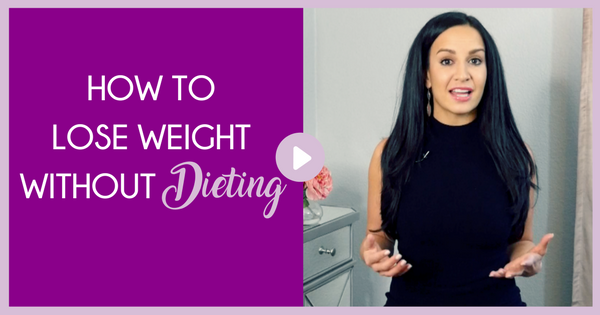
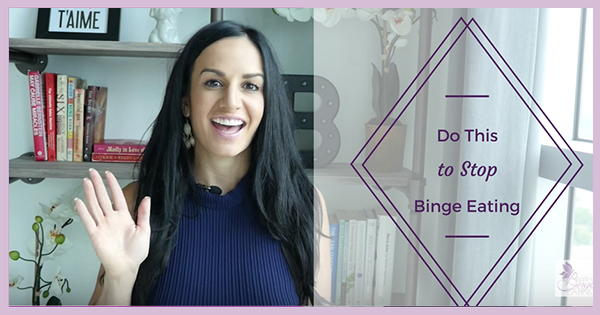
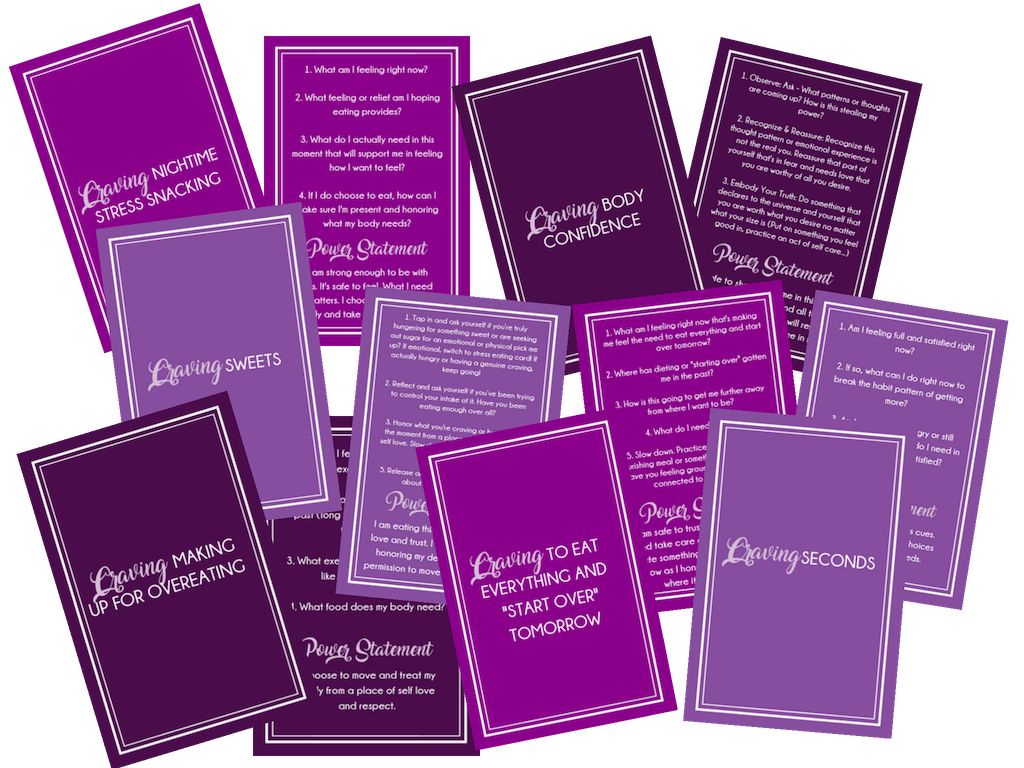




Leave a Reply
You must be logged in to post a comment.